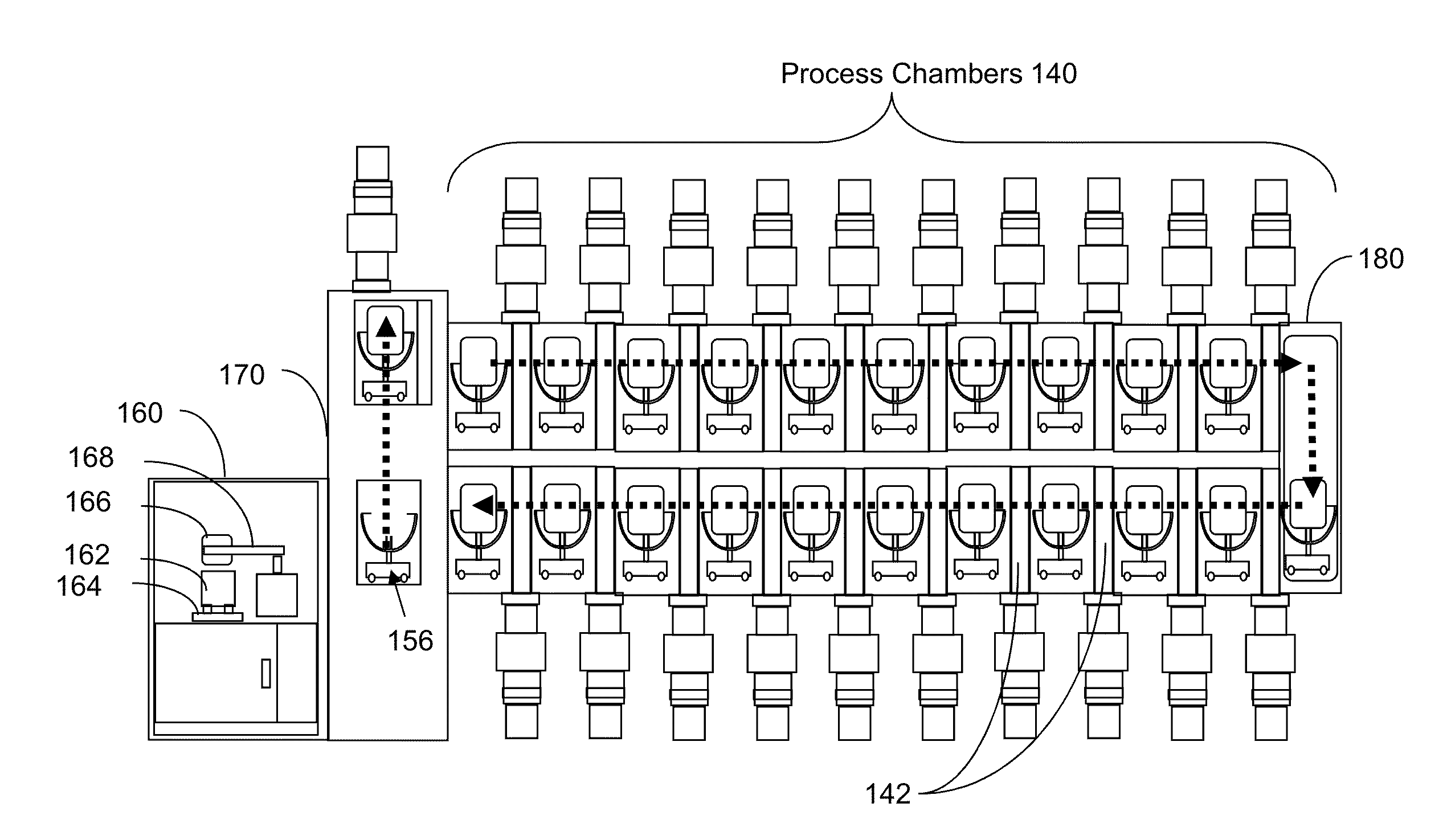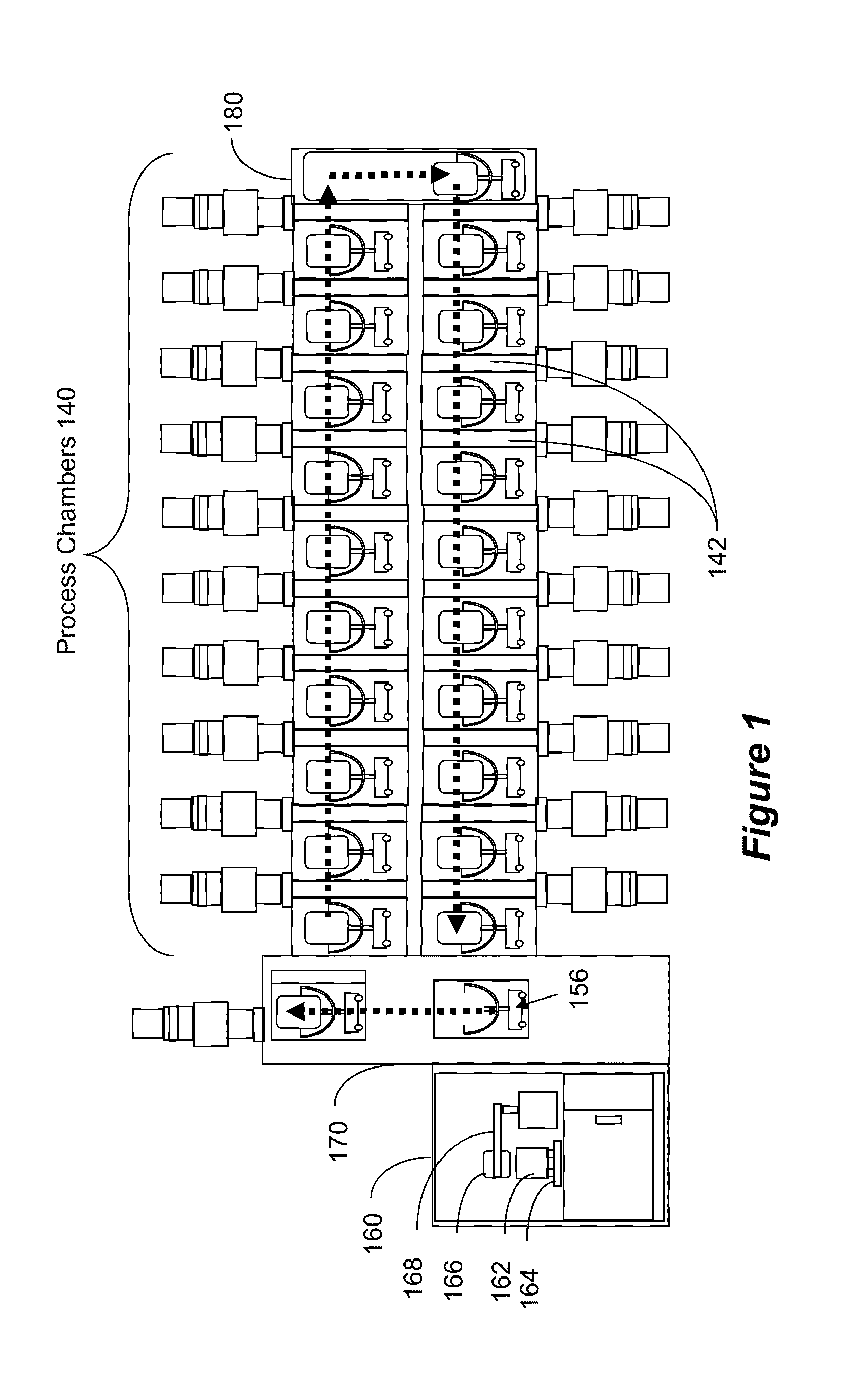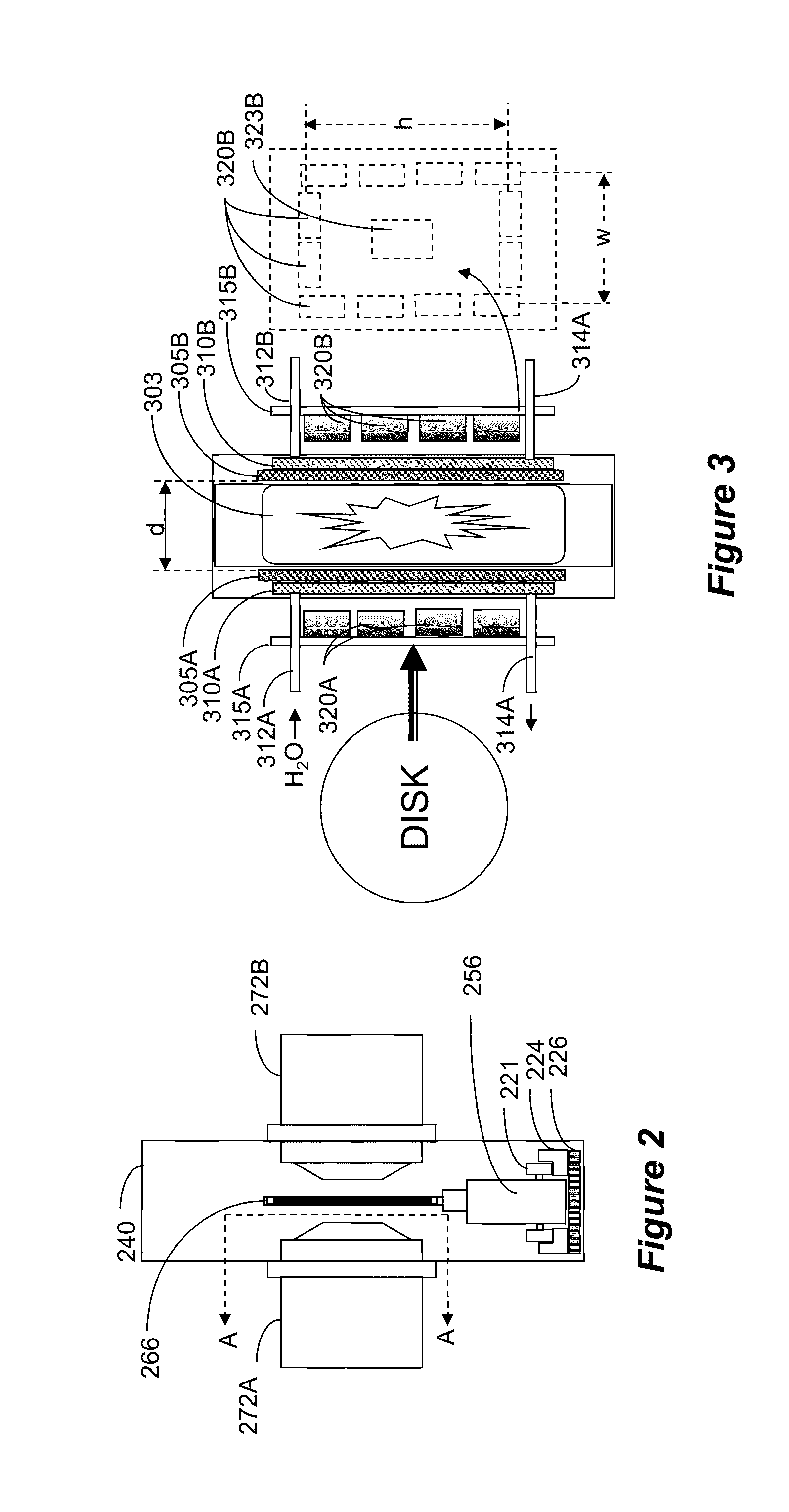Method and apparatus to produce high density overcoats
- Summary
- Abstract
- Description
- Claims
- Application Information
AI Technical Summary
Benefits of technology
Problems solved by technology
Method used
Image
Examples
example i
[0034]In a first example, a plurality of 354 kJ / m3 magnets are placed upon a 410 stainless steel mounting plate, which is subsequently attached directly behind each target's heatsink. The outer ring of magnets all have the same polarity, and the opposite polarity to the magnet plate constructed for the opposing target. An optional field-bending magnet 323B is added at the center of the mounting plate, so as to bend the magnetic field generated by the outer ring of magnets 320B. This provides an improved confinement of the plasma. In this example, an equal or weaker magnet 323B (BHmax≦354 kJ / m3) of opposite polarity of magnets 320B is interposed within the outer ring.
example ii
[0035]A process to produce a viable magnetic recording disc has been developed, using the described magnetron. The process preceding the carbon overcoat step is generalized to include a series of front end cleaning operations and possible mechanical texturing in preparation for multilayer deposition, which is not particularly relevant to the method of the invention. Furthermore, it is assumed that the preceding steps occurring prior to carbon deposition include some combination of magnetic and non-magnetic materials (predominantly metals) and that the disc temperature heading into the carbon deposition station is in the range of 300-500 K. A ta-C carbon deposition then ensues with the cathode pairs (one about each side of the disc) such that each has a target pair separated by 50 mm, with peripheral magnets having north magnetic pole pointing towards the target and a center magnet having a south magnetic pole pointing towards the target. The target on the opposite side has the oppos...
PUM
| Property | Measurement | Unit |
|---|---|---|
| Power | aaaaa | aaaaa |
| Transport properties | aaaaa | aaaaa |
| Vacuum | aaaaa | aaaaa |
Abstract
Description
Claims
Application Information
 Login to View More
Login to View More - R&D
- Intellectual Property
- Life Sciences
- Materials
- Tech Scout
- Unparalleled Data Quality
- Higher Quality Content
- 60% Fewer Hallucinations
Browse by: Latest US Patents, China's latest patents, Technical Efficacy Thesaurus, Application Domain, Technology Topic, Popular Technical Reports.
© 2025 PatSnap. All rights reserved.Legal|Privacy policy|Modern Slavery Act Transparency Statement|Sitemap|About US| Contact US: help@patsnap.com



